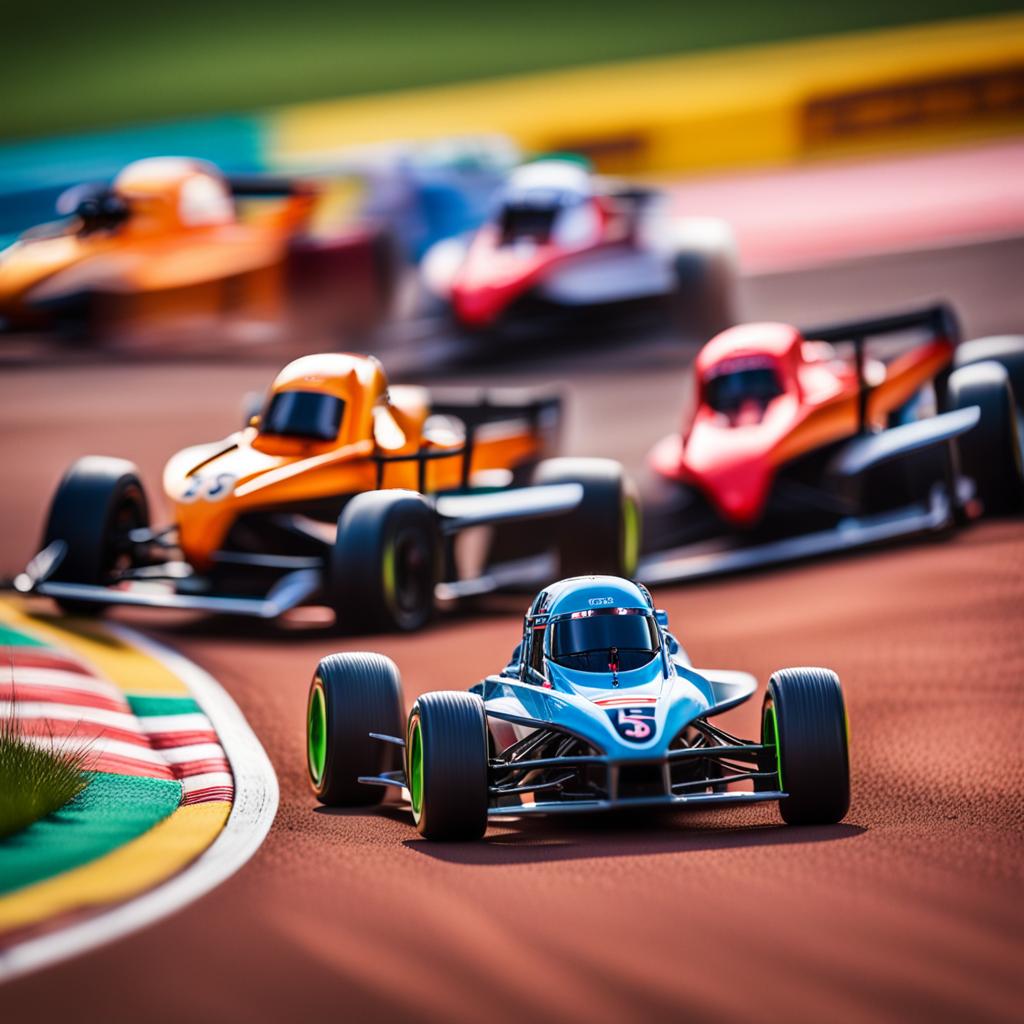
The Thrilling World of RC Racing: A Global Phenomenon
Remote control (RC) racing is an exciting sport that has captured the hearts of enthusiasts around the globe. Combining the thrill of speed, the challenge of technical mastery, and the fun of competition, RC racing offers something for everyone. The sport has grown from humble beginnings into a global phenomenon, involving people of all ages and skill levels. With events held in major cities and remote communities alike, RC racing continues to build a dedicated following. In this blog, we’ll explore its fascinating history, examine its worldwide popularity, and dive into the intricacies of its rules and competitions. Whether you’re an amateur racer or simply curious, RC racing has something remarkable to offer.
The Origins and History of RC Racing
RC racing traces its roots back to the 1960s. The development of remote-controlled vehicles began as a hobby among engineering enthusiasts. Early models were simple and often crafted by hand, using radio technology derived from other industries.
In the 1970s, the first commercially available RC cars were released. Brands such as Kyosho and Tamiya quickly became pioneers in the field. These cars were initially sold as kits, requiring users to assemble them. The process fostered a strong DIY culture, which remains a hallmark of the sport today.
By the 1980s, RC racing began to take off as a competitive sport. The introduction of organized events and standardized rules helped formalize the activity. Clubs formed in local communities, allowing racers to meet, compete, and exchange ideas.
The 1990s saw the rise of advanced technology. Lithium batteries, brushless motors, and digital controls revolutionized the performance of RC vehicles. With these innovations, RC racing became faster and more precise. Major international championships also emerged during this era, drawing racers from around the globe.
Today, RC racing enjoys a well-established position in both recreational and professional spheres. Manufacturers continue to push technological boundaries, ensuring the sport evolves with the times.
The Global Popularity
RC racing has a global appeal, thriving in countries across every continent. The sport’s accessibility is one reason for its widespread popularity. Unlike traditional motorsports, it requires less financial investment and space.
In North America, it is particularly popular in the United States and Canada. Local tracks and clubs are plentiful, and large-scale events attract racers from all over the continent. Europe also has a strong RC racing scene, especially in countries like Germany, the United Kingdom, and Italy. These nations host some of the most prestigious tournaments.
In Asia, Japan leads the way with its rich history of RC manufacturing. Japanese brands continue to dominate the market, and the country hosts numerous professional and amateur events. Other Asian nations, such as China and South Korea, have also embraced the sport.
Australia and New Zealand boast thriving RC racing communities as well. The spacious landscapes and favorable weather make outdoor racing particularly enjoyable in these regions. Meanwhile, in South America and Africa, the sport is steadily growing, driven by increasing accessibility to affordable equipment.
RC racing’s universality can be attributed to its inclusive nature. Enthusiasts from different backgrounds and cultures find common ground in their passion for this sport.
Amateur RC Racing: A Foundation for All Ages
Amateur RC racing forms the backbone of the sport. This level of racing is often the first step for enthusiasts, offering a way to learn and participate without high stakes. Clubs, schools, and community groups around the world encourage newcomers to join.
Many local RC racing clubs host weekly or monthly events. These gatherings provide an opportunity to practice, compete, and socialize. Beginners can learn from experienced racers, while hobbyists can test their skills in a friendly environment.
Youth involvement is particularly significant in amateur RC racing. Schools and after-school programs frequently introduce students to the sport. These initiatives teach engineering principles, problem-solving, and teamwork. Building and maintaining RC cars is an educational and fun experience, fostering a lifelong interest in science and technology.
Some countries have taken youth participation to the next level by organizing national school championships. These competitions encourage innovation and collaboration among students. Programs like these ensure that the next generation of racers is well-prepared and enthusiastic.
Amateur racing also serves as a stepping stone to professional leagues. Many top racers started their journey at the grassroots level, honing their skills before entering the big leagues.
Professional RC Racing Leagues Around the World
The professional side of RC racing is highly competitive and thrilling. Numerous leagues and organizations oversee the sport at an elite level, ensuring fair play and high standards.
The International Federation of Model Auto Racing (IFMAR) is the global governing body for RC racing. It organizes world championships in various categories, including off-road, on-road, and electric-powered vehicles. These events attract the best racers and manufacturers, showcasing the pinnacle of RC technology and skill.
In the United States, organizations like ROAR (Remotely Operated Auto Racers) govern regional and national competitions. ROAR ensures consistent rules and regulations, making it easier for racers to transition to international events.
Europe boasts prestigious events such as the European Championship, managed by the European Federation of Radio Operated Model Automobiles (EFRA). These competitions are known for their high technical standards and intense rivalries.
Asia, with its strong manufacturing base, hosts many professional leagues. Japan’s JMRCA (Japan Model Racing Car Association) is one of the most respected organizations in the world. The country’s dedication to innovation and precision makes its leagues highly competitive.
Professional RC racing is not just about speed. Strategy, consistency, and technical know-how play crucial roles in determining success. These leagues demonstrate the incredible potential of the sport while inspiring amateurs to dream big.
The Political and Social Significance
RC racing holds more than just entertainment value. Politically and socially, the sport contributes to education, community building, and cross-cultural exchange.
Educationally, RC racing promotes STEM (science, technology, engineering, and mathematics) learning. Schools and youth programs often incorporate RC cars into their curricula, teaching students about mechanics, electronics, and programming. These skills are vital in today’s technology-driven world, making the sport a valuable educational tool.
Socially, RC racing brings people together. Clubs and events create strong communities, fostering friendships and collaboration. In diverse regions, the sport acts as a bridge, uniting individuals from different backgrounds through a shared passion.
Politically, RC racing has been used to promote sustainability and environmental awareness. Electric-powered RC vehicles serve as a platform to demonstrate the benefits of renewable energy and green technology. Several organizations have partnered with environmental initiatives, showcasing how the sport can drive positive change.
RC racing’s ability to combine education, social interaction, and environmental advocacy underscores its significance beyond the track.
Understanding the Rules
RC racing may seem straightforward, but it involves a complex set of rules designed to ensure fairness and excitement. These rules vary depending on the type of event and category.
In general, races are divided into on-road and off-road categories. On-road events take place on paved tracks, while off-road competitions involve dirt tracks with jumps and obstacles. Each type requires unique skills and setups.
Competitors must follow specific regulations regarding their vehicles. Cars are classified by scale (e.g., 1:10 or 1:8) and power source (electric or nitro). Weight, dimensions, and motor specifications are strictly monitored to maintain a level playing field.
Races are usually conducted in a heat format. Each heat consists of multiple laps, with racers aiming to achieve the fastest time. Points are awarded based on performance, and the racer with the highest score wins the overall event.
Sportsmanship is a key aspect of RC racing. Racers are expected to adhere to fair play, and penalties are issued for infractions such as unsportsmanlike conduct or vehicle tampering.
Pit stops add another layer of strategy. Racers must manage battery life, fuel, and tire wear efficiently. Quick and precise pit stops often make the difference between victory and defeat.
Understanding these rules is crucial for anyone looking to participate in RC racing, whether as a hobbyist or professional.
Why RC Racing is Here to Stay
The enduring appeal of RC racing lies in its blend of competition, innovation, and community spirit. From its humble origins to its global impact, the sport continues to evolve and inspire.
Technology will undoubtedly play a significant role in the future of RC racing. Advances in artificial intelligence, connectivity, and renewable energy promise to make the sport even more exciting. Simultaneously, grassroots efforts will ensure it remains accessible to all, fostering a new generation of enthusiasts.
RC racing is more than just a hobby or a sport. It’s a celebration of creativity, skill, and camaraderie. As the world becomes increasingly connected, the global community of RC racers will only grow stronger.
Whether you’re tuning a car in your garage, teaching a child about mechanics, or cheering at an international championship, RC racing offers endless opportunities for joy and discovery. Embrace the thrill of the race, and see where the journey takes you.





